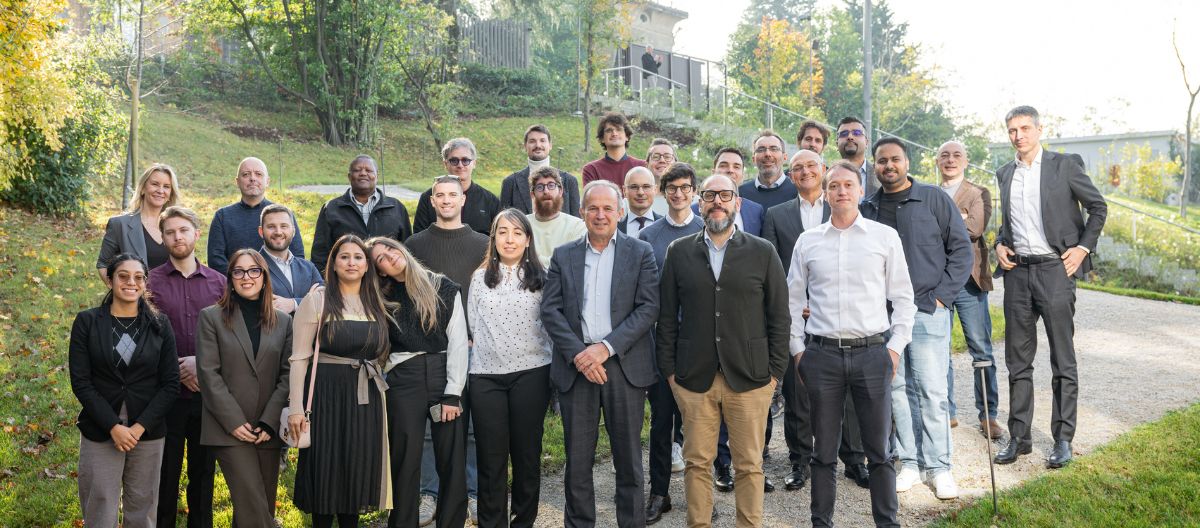
Executive Master in AI for Business: a milestone that is only the beginning
24 November 2025From a year of study to practical implementation in companies. On Friday, November 14, Bologna Business School hosted the closing day of the Executive Master in Artificial Intelligence for Business, during which participants presented their project works, demonstrating how AI can generate real value within organizations.
The day opened with institutional greetings from Maurizio Gabbrielli, Academic Director, followed by remarks from Cristiano Boscato, Project Work Coordinator and Faculty Member; and Francesco Balzan, Scientific Coordinator. All of them emphasized the value of the program that has just come to an end: a year of hybrid, international training designed for managers, professionals, and entrepreneurs who are leading digital transformation in their organizations.
The project work presentations, highlighted the strategic potential of artificial intelligence when it is driven by conscious leadership and a systemic vision. The projects covered a range of areas, from operations to marketing, from resource management to customer experience, offering concrete examples of how AI can become a lever for innovation, efficiency, and competitive advantage.
This is precisely the purpose of the Master: to train leaders who can navigate complexity, guide interdisciplinary teams, and make decisions based not only on data, but also on a deep understanding of the business, ethical, and social contexts in which they operate. To achieve this, the program combines access to cutting-edge technologies with an experiential learning approach, centered on the individual and on continuous dialogue with faculty, companies, and peers from all over the world.
With the project work presentations, the journey of this second edition officially came to a close. Yet this is only a starting point: each participant returns to their company with a concrete roadmap, new skills, and a clearer vision of the role they can play in the digital transformation of their own context.
